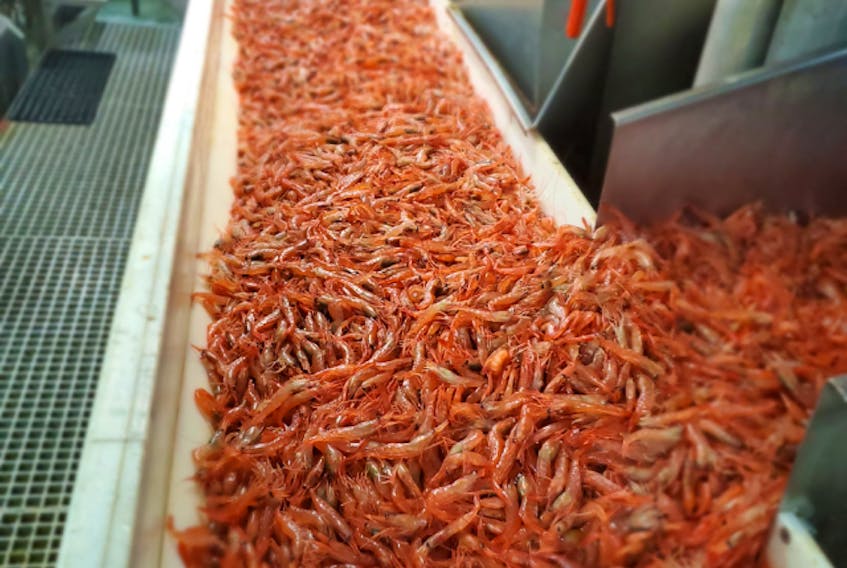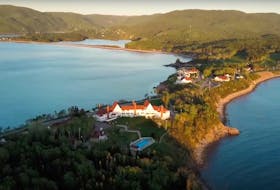CORNER BROOK, N.L. — Shrimp fishers who ply the Gulf fishing zone of Atlantic Canada say they could be in a tough spot this season if the federal government does not craft an emergency response program specifically for them.
The coalition, made up of three fishermen's’ associations and six native communities from three different provinces, says the aid package Ottawa announced for the fishery earlier this month is not sufficient to help this particular fleet.
Jason Spingle, west coast representative for the Fish Food and Allied Workers (FFAW) union in Newfoundland and Labrador, told SaltWire the coalition represents about 90 shrimp fishing enterprises, and 425 crew members, in the region.
He says most of those enterprises rely mainly on shrimp for their livelihood, and operate from 65 ft vessels, fishing in Shrimp Fishing Areas (SFA) 8, 9, 10 and 12, more commonly known as the Gulf zone.
The enterprises are from New Brunswick, Quebec and the Lower North Shore of Quebec, and the west coast and Northern Peninsula of Newfoundland and Labrador.

In an interview on May 27, Spingle said the COVID-19 pandemic is hitting the shrimp fishery just like it did the crab and lobster fisheries.
And the members of the coalition are worried that a slump in the shrimp markets due to the global pandemic will mean much lower prices for their shrimp or, possibly, no market at all.
Prices, wages dropping
In a May 25 press release, the coalition alleged that processors in the Atlantic region have cited large volumes of inventory and virtually no movement in the market.
“As a result, most buyers, including those in Newfoundland and Labrador and New Brunswick, have made it clear they may be unable to buy any shrimp this year, while buyers in Quebec I’ve offered a price much lower than what has been offered last year,” the coalition stated in the release.
However, Derek Butler, executive director of the Association of Seafood Processors (ASP) in Newfoundland, said he was surprised by that statement.
“We have scheduled negotiations with the (FFAW) Union and while the market is difficult, I was under the impression everyone was intent on a fishery. I doubt we would pass on it altogether,” he told SaltWire.
The Department of Fisheries and Oceans (DFO) has already announced quotas for the Gulf zone. The total allowable catch this year is 17,999 metric tonnes. However, fishers and processors have not negotiated prices for the season.

In a telephone interview, Spingle acknowledged, “No one has said they won’t process shrimp . . . for sure there is some market but based on the news we have it’s getting more concerning.”
Last year fish harvesters were paid $1.60-$1.70 per pound for shrimp.
“But now we’re dealing with things dropping off the cliff,” said Spingle.
A price drop means an immediate loss of wages for each crew member on an inshore shrimp boat.
Crew members’ wages are determined by their percentage (or share) of the catch.
Spingle explains it this way.
On average a crewmember on a shrimp boat gets six percent of the catch.
“At last year’s price, anyone fishing on a boat with a 200,000-pound quota, with shrimp at $1.50 a pound, would have made $18,000.”
Some of the boats have combined licenses, he added, giving them up to double the catch and double the wages for each fisher on board.
A drop in shrimp prices immediately translates to a drop in wages.
He added, most of the 65-foot fleet on the west coast of Newfoundland have nothing else to fish except shrimp.
If the price drops or the market collapses entirely, it will be a tough season.
Ask from the feds
“The stakes are great in the many communities spread around the Gulf of St. Lawrence we are more than 2,000 direct jobs rely on the shrimp industry.”
- Claudio Bernatchez, director general at l’Association des Capitaines Propriétaires de la Gaspesie
That’s why they’re asking the federal government for a program designed specifically for the Gulf shrimp fleet.
Randell Genge, chair of the 4R fleet in Newfoundland and Labrador, stated in the coalition’s press release, “Unfortunately the current program won’t help the majority of enterprises in our fleet.”
The coalition is asking Ottawa for a shrimp fishing package with six specific components.
They want fishing permit fees waived for 2020 and the 75-per-cent salary subsidy program extended to cover the entire shrimp fishing season. They also want the maximum amount for shrimp fishing enterprises through the fishing industry support program increased to $120,000, and an increase to the non-repayable portion of the loan.
The coalition is also asking for compensation for First Nations communities for loss of revenue in fishing enterprises due to COVID-19.
The group also wants Ottawa to ensure benefits for shrimp plant workers, as well as shrimp crewmembers, by changing the qualification criteria for Employment Insurance benefits to ensure they are not left without income due to a delay in the start of the season or a shorter fishing season.
Normally, the shrimp fishing season would have started by now. It usually runs from April to December.
A delay in the start of the season could mean a shorter work season, and less income, for the approximately 1,200 plant workers in the region.
Claudio Bernatchez, director general at l’Association des Capitaines Propriétaires de la Gaspesie (ACPG), said in the coalition press release: “The stakes are great in the many communities spread around the Gulf of St. Lawrence we are more than 2,000 direct jobs rely on the shrimp industry.”
The coalition had a conference call with DFO officials on Thursday, May 27.
Spingle says their proposals now have to be reviewed by the office of the Minister of Fisheries and Oceans.
He said the group has also asked for a meeting with minister Bernadette Jordan.









